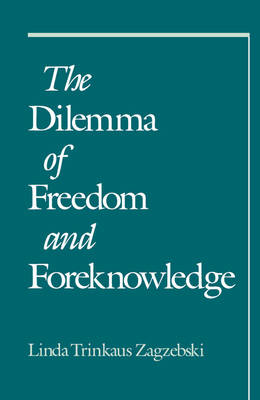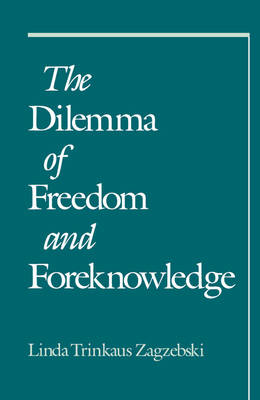
- Afhalen na 1 uur in een winkel met voorraad
- Gratis thuislevering in België vanaf € 30
- Ruim aanbod met 7 miljoen producten
- Afhalen na 1 uur in een winkel met voorraad
- Gratis thuislevering in België vanaf € 30
- Ruim aanbod met 7 miljoen producten
Zoeken
€ 161,45
+ 322 punten
Omschrijving
This original analysis examines the three leading traditional solutions to the dilemma of divine foreknowledge and human free will--those arising from Boethius, from Ockham, and from Molina. Though all three solutions are rejected in their best-known forms, three new solutions are proposed, and Zagzebski concludes that divine foreknowledge is compatible with human freedom. The discussion includes the relation between the foreknowledge dilemma and problems about the nature of time and the causal relation; the logic of counterfactual conditionals; and the differences between divine and human knowing states. An appendix introduces a new foreknowledge dilemma that purports to show that omniscient foreknowledge conflicts with deep intuitions about temporal asymmetry, quite apart from considerations of free will. Zagzebski shows that only a narrow range of solutions can handle this new dilemma. A compelling contribution to the field, The Dilemma of Freedom and Foreknowledge will appeal to students and scholars of theistic philosophy and the philosophy of religion.
Specificaties
Betrokkenen
- Auteur(s):
- Uitgeverij:
Inhoud
- Aantal bladzijden:
- 224
- Taal:
- Engels
Eigenschappen
- Productcode (EAN):
- 9780195107630
- Verschijningsdatum:
- 25/04/1996
- Uitvoering:
- Paperback
- Formaat:
- Trade paperback (VS)
- Afmetingen:
- 164 mm x 202 mm
- Gewicht:
- 240 g

Alleen bij Standaard Boekhandel
+ 322 punten op je klantenkaart van Standaard Boekhandel
Beoordelingen
We publiceren alleen reviews die voldoen aan de voorwaarden voor reviews. Bekijk onze voorwaarden voor reviews.







